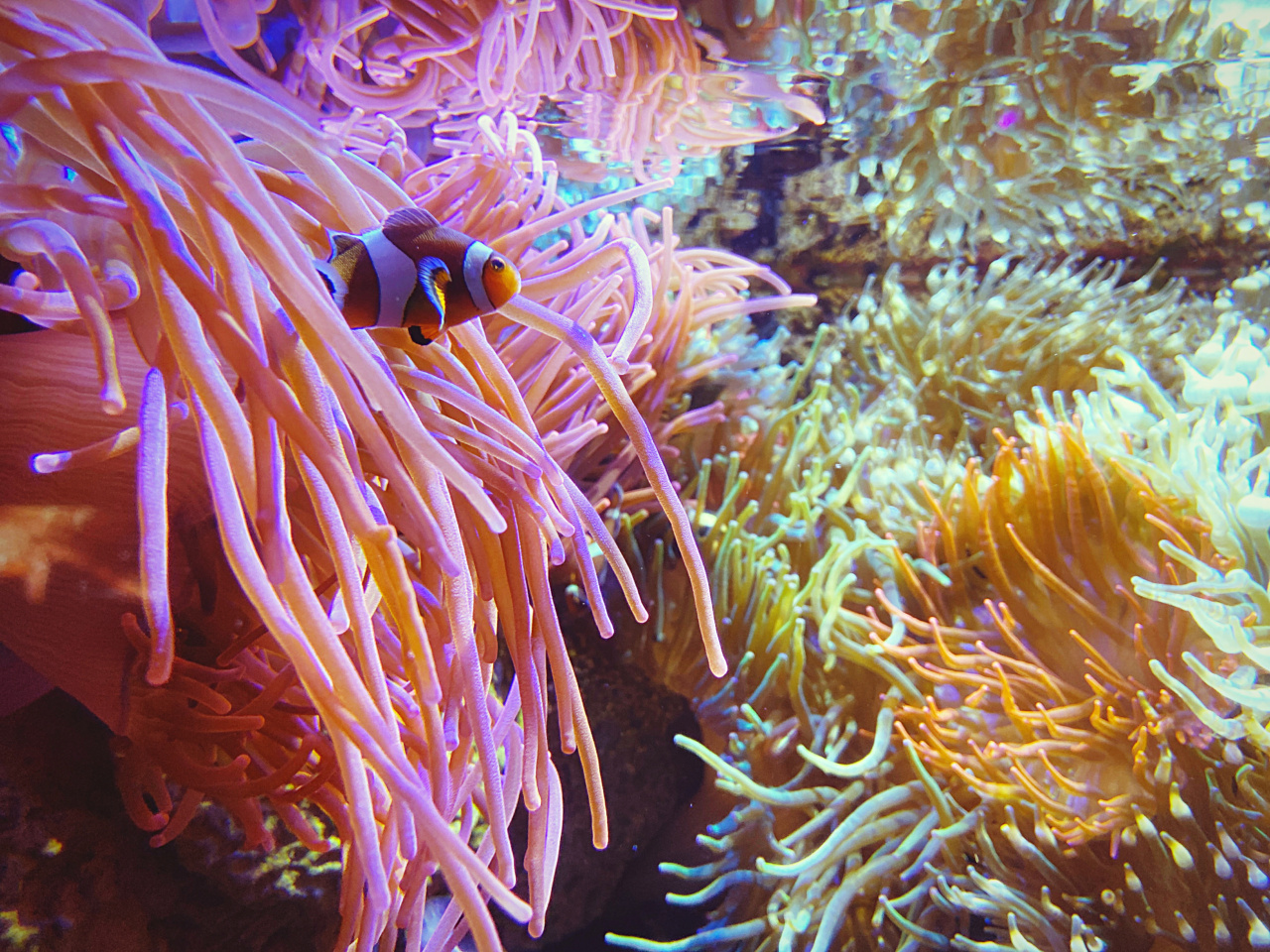Saltwater is a fascinating element of our planet that covers around 70% of the Earth’s surface. It is abundant in our oceans and seas, and it plays a crucial role in our ecosystem.
While we often associate saltwater with its presence in marine environments, it has numerous benefits beyond just being a habitat for marine life. In this article, we will explore the many benefits of saltwater and how it positively impacts various aspects of our lives.
The Importance of Saltwater Ecosystems
Saltwater ecosystems, such as oceans, seas, and estuaries, are vital for maintaining the balance of life on Earth. These ecosystems support a vast array of marine organisms, including fish, corals, algae, and countless others.
They provide a habitat for these organisms to thrive and contribute to biodiversity in ways that are still being discovered by scientists.
Furthermore, saltwater ecosystems play a crucial role in regulating the Earth’s climate. The oceans absorb a significant amount of the carbon dioxide present in the atmosphere, thus helping to mitigate climate change.
Additionally, they act as a heat sink, absorbing and redistributing heat across the planet through ocean currents.
Preserving and protecting saltwater ecosystems is essential for maintaining the delicate balance of our planet’s climate and biodiversity.
By understanding the benefits of saltwater, we can work towards better conservation and sustainable practices.
The Health Benefits of Saltwater
In addition to its ecological significance, saltwater also offers numerous health benefits for humans.
Saltwater therapy, also known as thalassotherapy, has been practiced for centuries and is believed to provide various physical and mental health benefits.
1. Improved Skin Health
One of the primary benefits of saltwater is its positive impact on skin health. Exposing the skin to saltwater can help exfoliate dead skin cells and unclog pores, leading to clearer and healthier skin.
The minerals present in salt, such as magnesium and potassium, have anti-inflammatory properties that can soothe skin conditions like eczema or psoriasis.
2. Wound Healing
Saltwater has natural antiseptic properties that can promote wound healing. It cleanses wounds, prevents infection, and aids in tissue repair. Saltwater also helps reduce inflammation, making it an effective remedy for minor cuts or abrasions.
3. Respiratory Health
The salty sea air is often associated with improved respiratory health. Breathing in salt-infused air can have a cleansing effect on the respiratory system, helping to clear mucus and reducing inflammation in the airways.
Saltwater is commonly used in various forms of respiratory therapies, such as saltwater inhalation or saltwater gargling.
4. Stress Relief
Being near the ocean or spending time in saltwater environments can have a calming effect on the mind. The rhythmic sound of waves and the tranquil ambiance of the beach have been shown to reduce stress and promote relaxation.
Saltwater therapy can be an excellent way to unwind and alleviate anxiety.
5. Improved Circulation
Immersing yourself in saltwater can stimulate blood circulation, helping to improve overall cardiovascular health.
The minerals in saltwater can dilate blood vessels and increase blood flow, which is beneficial for people with poor circulation or conditions such as varicose veins.
6. Muscle and Joint Relief
Saltwater baths or even floating in the ocean can offer relief for sore muscles and joints. The buoyancy of saltwater reduces the impact on joints, allowing for gentle movement and alleviating stress on the body.
The magnesium in saltwater also has muscle relaxant properties, further aiding in easing discomfort.
The Benefits of Saltwater in Agriculture
While we primarily associate saltwater with marine environments, it can also have positive impacts in other areas, such as agriculture.
1. Irrigation and Crop Growth
Seawater can be used for irrigation in regions where freshwater scarcity is an issue. Certain crops, such as rice, are more tolerant of saline water and can be successfully grown using saltwater irrigation.
Implementing saltwater irrigation systems can help alleviate the pressure on freshwater resources, especially in coastal areas.
2. Salt-Tolerant Crops
Research is underway to develop crop varieties that are more tolerant of saltwater. These crops would allow for sustainable agriculture in regions with high salinity levels in the soil.
By harnessing the benefits of saltwater and adapting our farming practices, we can cultivate crops and provide food security in otherwise challenging environments.
3. Saltwater Aquaculture
Saltwater aquaculture, or the cultivation of marine organisms, is becoming increasingly important for sustainable seafood production.
Fish farms that utilize saltwater can reduce the strain on wild fish populations and provide a controlled environment for fish growth. By harnessing the benefits of saltwater, we can promote responsible and sustainable aquaculture practices.
Exploring Saltwater for Energy Generation
Another area where saltwater holds significant potential is energy generation.
1. Wave Energy
Wave energy, also known as ocean or tidal energy, harnesses the power of waves to generate electricity. As waves move across the ocean surface, they create kinetic energy that can be captured and converted into usable power.
Wave energy has immense potential as a renewable and sustainable source of electricity, and research and development in this field are rapidly progressing.
2. Salinity Gradient Energy
An emerging field of energy generation is salinity gradient power, which utilizes the difference in salt concentrations between freshwater and seawater. By selectively mixing these two types of water, energy can be harnessed through osmotic processes.
Salinity gradient energy holds promise as a clean and renewable energy source, with the potential to contribute significantly to global energy demands.
Conclusion
Saltwater is a remarkable and beneficial element that extends far beyond its role in marine ecosystems. From improving our health and well-being to fostering sustainable agriculture and energy generation, saltwater touches numerous aspects of our lives.
Understanding and harnessing the benefits of saltwater will enable us to make more informed decisions that promote the health of our planet and its inhabitants.































